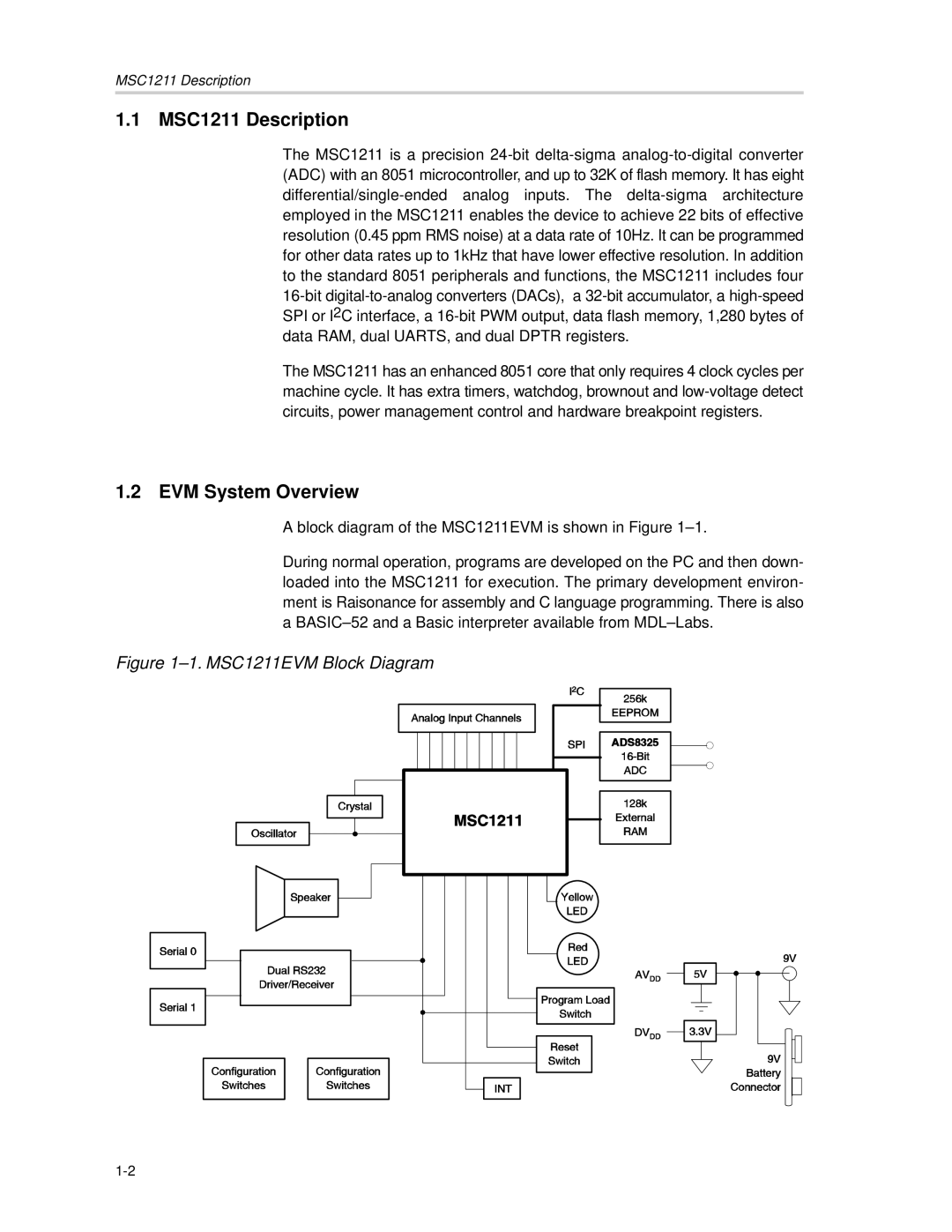MSC1211 specifications
Texas Instruments MSC1211 is a highly integrated, low-power microcontroller designed specifically for applications requiring high accuracy and precision in signal processing. As a member of the Texas Instruments Microcontroller family, the MSC1211 targets industrial automation, medical instrumentation, and portable measurement devices, making it a versatile choice for designers across various industries.One of the standout features of the MSC1211 is its 16-bit ADC (Analog-to-Digital Converter) that boasts a resolution of 16 bits, which enables the microcontroller to accurately convert analog signals into digital data. This high resolution makes it suitable for applications where precision is paramount, such as in medical devices that require accurate readings from sensors. The device can achieve sampling rates up to 1 kSPS (kilo Samples Per Second), making it efficient for real-time signal processing.
Another key characteristic of the MSC1211 is its low power consumption. The microcontroller employs advanced power management features, allowing it to operate in various power modes, making it ideal for battery-operated devices. The sleep mode dramatically reduces power consumption, extending the operational life of portable equipment significantly.
The MSC1211 features a built-in digital signal processor (DSP) that facilitates efficient data processing and filtering, enabling complex algorithms to be executed on the captured signals in real-time. This capability simplifies design considerations for developers, reducing the need for external DSP chips and enhancing system integration.
Connectivity is another significant aspect of the MSC1211. It supports standard communication protocols such as SPI (Serial Peripheral Interface) and I2C (Inter-Integrated Circuit), making it easy to interface with a variety of sensors and peripherals. This flexibility is crucial in today's interconnected world, allowing developers to design scalable systems that can accommodate future upgrades and enhancements.
Moreover, the microcontroller incorporates onboard memory, including RAM and Flash memory, ensuring ample storage for application codes and operational data. The flexibility in memory allocation allows developers to optimize their applications, balancing memory usage with processing speed.
In summary, the Texas Instruments MSC1211 microcontroller stands out for its high-resolution ADC, low power consumption, integrated DSP capabilities, and flexible communication options. These features make it an exceptional choice for applications in diverse fields such as medical devices, industrial automation, and portable measurement systems, ensuring precision and efficiency in performance.

